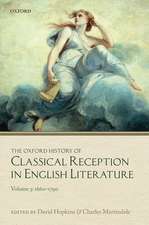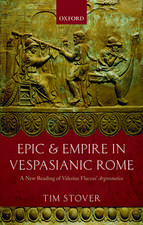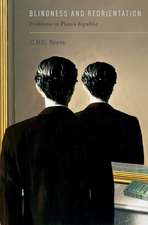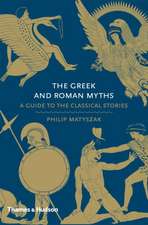At the Temple Gates: The Religion of Freelance Experts in the Roman Empire
Autor Heidi Wendten Limba Engleză Hardback – 6 oct 2016
Preț: 592.17 lei
Preț vechi: 790.51 lei
-25% Nou
Puncte Express: 888
Preț estimativ în valută:
113.32€ • 123.05$ • 95.19£
113.32€ • 123.05$ • 95.19£
Carte tipărită la comandă
Livrare economică 11-17 aprilie
Preluare comenzi: 021 569.72.76
Specificații
ISBN-13: 9780190267148
ISBN-10: 0190267143
Pagini: 280
Dimensiuni: 163 x 236 x 28 mm
Greutate: 0.5 kg
Editura: Oxford University Press
Colecția OUP USA
Locul publicării:New York, United States
ISBN-10: 0190267143
Pagini: 280
Dimensiuni: 163 x 236 x 28 mm
Greutate: 0.5 kg
Editura: Oxford University Press
Colecția OUP USA
Locul publicării:New York, United States
Recenzii
Wendt has produced an erudite, groundbreaking book that is sure to have an impact on how scholars study the dissemination of religious practices in the Roman world... Highly recommended for those working on ancient Mediterranean religion, ancient philosophy, and early 'Christian' identity.
At the Temple Gates leaves behind hackneyed theological assumptions in favor of sociological theorizing, and will undoubtedly stimulate vigorous and much needed discussion about the nature of religious activity in antiquity.
At the Temple Gates leaves behind hackneyed theological assumptions in favor of sociological theorizing, and will undoubtedly stimulate vigorous and much needed discussion about the nature of religious activity in antiquity.
Notă biografică
Heidi Wendt is Assistant Professor of New Testament and Christian Origins at Wright State University in Dayton, Ohio. She has written articles in the Journal of Roman Studies, the Journal of Biblical Literature, and the Journal of Ancient Judaism and teaches courses on Judeans and Christians in the Roman Empire, and the Greco-Roman context of New Testament literature.















